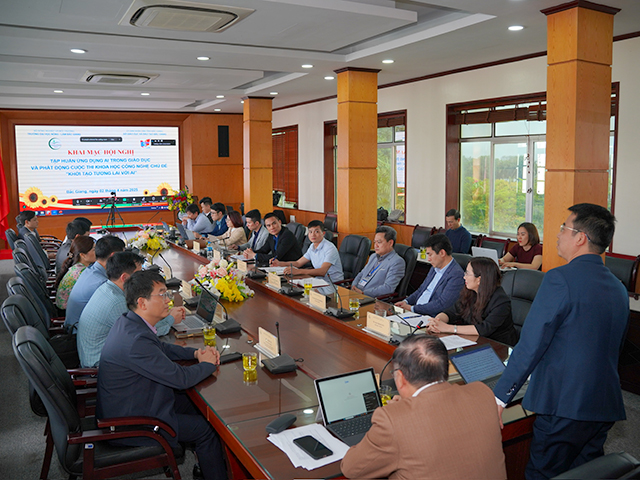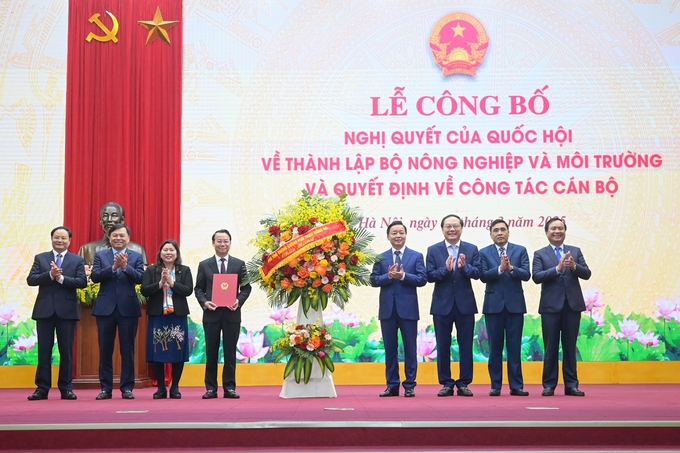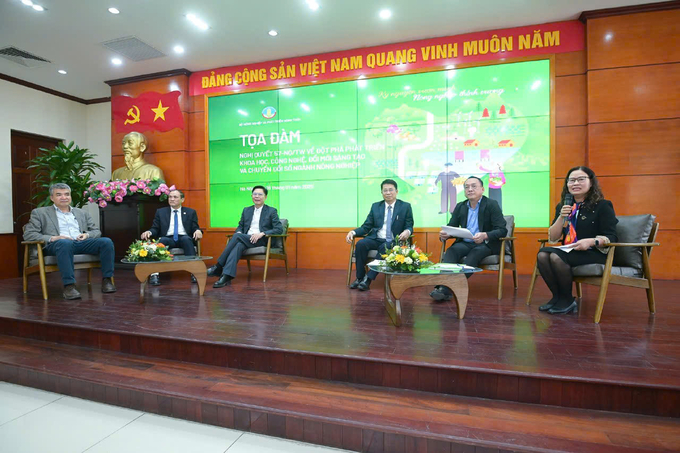(BAFU) – Developing multi-layered and multi – value agriculture offers a sustainable direction for agriculture in Bac Giang and underscores the need for a close connection among the “Four Stakeholders” (the Government, Scientists, Businesses and Farmers). In an interview with Bac Giang Newspaper, Prof. Dr. Pham Bao Duong, Rector of Bac Giang Agriculture and Forestry University (BAFU), outlined core solutions to implement this model. These solutions aim to enhance the value of agricultural products.
1. BAFU has made contributions to the development of multi-layered and multi – value agriculture model
In recent years, as a leading institution in agricultural training and research, BAFU has made significant contributions to promoting the model of multi-layered and multi – value agriculture in Bac Giang and other provinces across the country. Over the past five years, the university has trained thousands of engineers, bachelors, and masters in fields such as agriculture, forestry, food technology, resource and environmental management. Approximately 60% of its graduates have been working in Bac Giang, contributing to the improvement of the local workforce quality.
The university has sent more than 150 students to participate in internship programs in developed countries such as Israel, Denmark, and Japan. After completing their training and returning to Vietnam, these students have acquired valuable knowledge and gained extensive experience.
In scientific research and technology transfer, the university has undertaken studies related to testing crop variety; preservation and processing of agricultural products, medicinal herbs, and the development of value chain linkage models. These research projects have made positive contributions to the advancement of multi-value agriculture in Bac Giang and other localities. A notable project is the study of technical measures for cultivating Ha den grape imported from China in several northern midland and mountainous provinces. Following its success, the project has been transferred to over 35 provinces and cities.
Currently, in Bac Giang, many vineyards have adopted the cultivation of Ha den grape. In addition to generating income from grape products, these vineyards also attract tourists, creating additional income through eco-tourism. This exemplifies the multi-value approach in agricultural production.
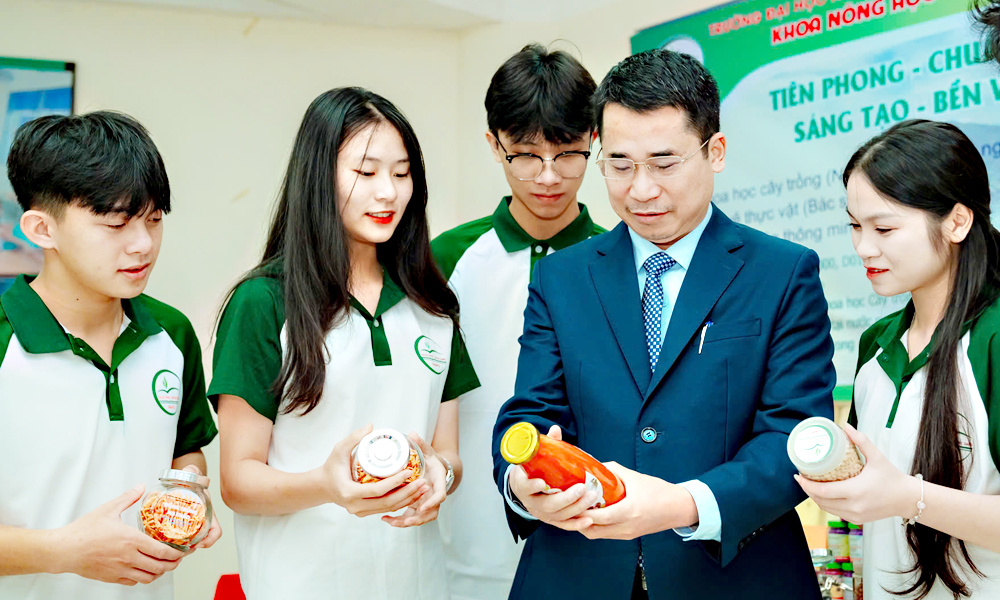
Prof. Dr. Pham Bao Duong shares his insights on startup products with students
2. Major Challenges to the Development of Multi-Value Agriculture in Bac Giang
Bac Giang has significant potential in multi-value agriculture; however, the development of this model faces several challenges. These include limitations in infrastructure and technology, as well as a shortage of high-quality human resources.
The consumption market is not sustainable, most agricultural products in Bac Giang still rely on traditional markets, easily affected by price fluctuations. Deep processing is limited; agricultural tourism is not yet developed. Additionally, extreme weather, climate change and epidemics are increasingly affecting productivity and product quality.
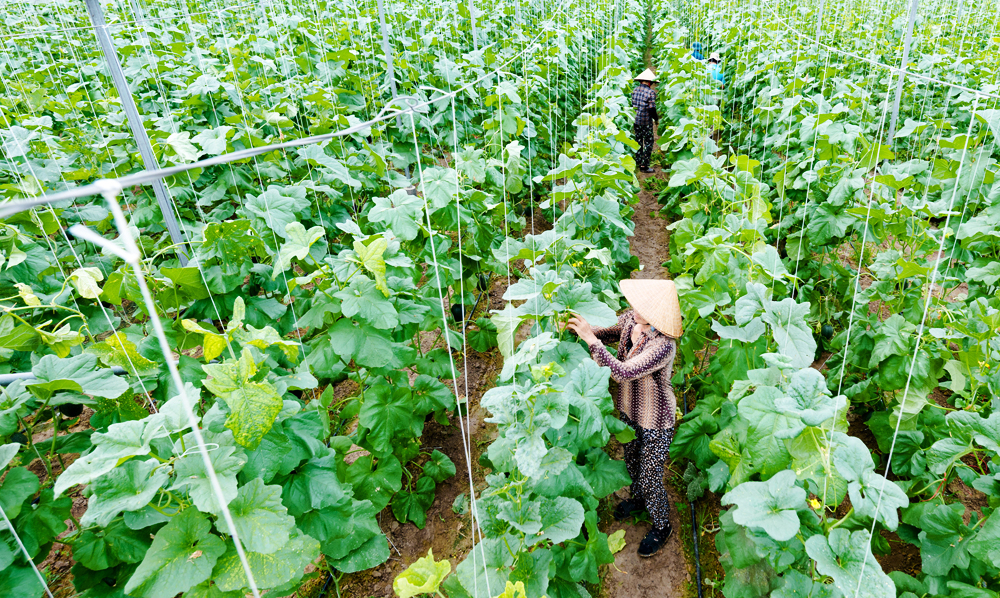
A model of high-tech agricultural production in Tu Lan Ward (Viet Yen Town)
3. Challenges in Changing Farmers’ Mindsets in Local Communities
The people of Bac Giang have a long-standing tradition of farming and are quick to learn and adopt advanced agricultural models. However, there is a significant gap in transitioning from traditional agricultural production to a modern agricultural economy so that the “Four Stakeholders” participate, and value is crystallized in the final product.
The process of changing farmers’ mindsets and actions in Bac Giang in applying the model of multi-layered and multi – value agriculture faces some major difficulties related to both psychological, economic and knowledge factors:
(1) Conservative Mindset and Old Habits;
(2) Lack of Knowledge and New Skills;
(3) Insufficient Investment Capital;
(4) Challenges in Building Linkage Models;
(5) Mindset of Relying on Government Support.
4. To develop sustainable multi-layered and multi-value agriculture, close coordination between local authorities, scientists, businesses, and farming communities is essential
(1) From the government’s side, it is necessary to establish policies that support and encourage the application of multi-layered agricultural methods. It is important to encourage the development of agricultural cooperatives and models of chain-linked agricultural business. Investment in agricultural infrastructure, ensuring a reliable water supply and fertilizers for multi-layered gardens. Farmers should be encouraged to participate in training programs on organic production, recycling by-products, and using resources efficiently. The province should also create more favorable mechanisms to attract huge enterprises to invest in multi-layered agricultural development in the locality, especially processing companies, creating a balance between production and processing, and promoting deep processing to increase product value.
(2) Businesses need to invest in research and development of new technologies to improve efficiency and product quality in multi-layered agriculture. They should collaborate with farmers to ensure stable product outputs and share benefits according to the shared economy model.
(3) The farming community needs to learn from and apply effective multi-layered agricultural methods from experts and local organizations. They should participate in agricultural cooperation models and circular production processes to save and use resources efficiently, reducing soil, water, and air pollution.
(4) Additionally, scientists and universities should continue researching and transferring scientific and technological advancements, training high-quality human resources, and contributing to increasing production value.
Sincerely thank Prof. Dr. Pham Bao Duong for his valuable insights!




